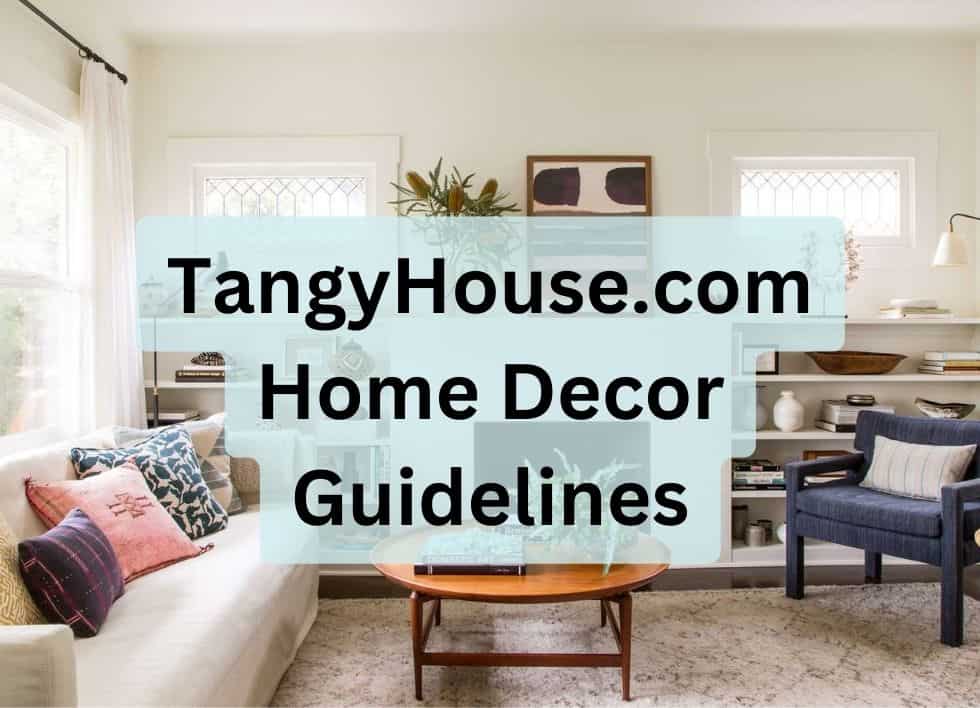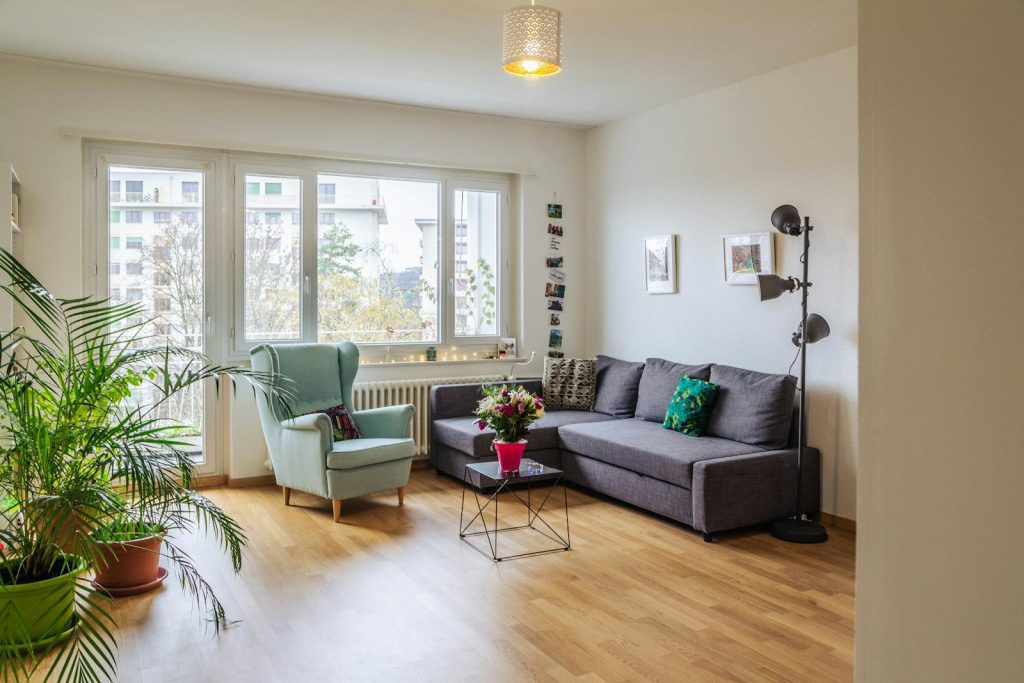Home is where the heart is, and your decor should reflect that sentiment. Over the years, I have learned that home decor goes beyond just aesthetics; it’s about creating an ambiance that resonates with your personality and lifestyle. This guide will provide you with practical tips, innovative ideas, and personal anecdotes on how to elevate your living space. From color schemes to furniture arrangement, let’s dive into the world of home decor.
Understanding Home Decor
Home decor encompasses everything that enhances the ambiance of your living space. It includes furniture, color schemes, art, textiles, and even lighting. The ultimate goal of home decor is to create a functional and inviting environment. But how do you achieve that?
The Importance of Personal Style
Your home should tell your story. Incorporating personal mementos, family photos, or even travel souvenirs can create a space that feels uniquely yours. I remember when I decorated my first apartment; every piece of decor had a story, and it instantly felt like home.

Finding Inspiration
Inspiration can come from various sources. Here are some of my go-to places for fresh ideas:
- Magazines: Home decor magazines often feature trendy ideas and styles.
- Social Media: Platforms like Pinterest and Instagram are treasure troves for creative designs.
- Visit Local Stores: Sometimes, seeing items in person can spark new ideas.

Key Elements of Home Decor
Color Schemes

Color sets the mood for your home. Choosing a cohesive color palette can unify your space and create a sense of harmony. I once painted my living room a soft blue, and it transformed the entire atmosphere of the room.
Choosing the Right Colors
Consider the following tips when selecting colors for your home:
- Use a color wheel to find complementary shades.
- Consider the psychology of colors—blue is calming, while yellow can energize a room.
- Test paint samples on your walls to see how they look at different times of the day.

Furniture Arrangement
Effective furniture arrangement can maximize space and functionality. I learned this the hard way when I overcrowded my small living room. Here are some strategies for better furniture arrangement:

| Room Type | Recommended Arrangement | Tips |
|---|---|---|
| Living Room | Focus on a central point like a fireplace or TV | Leave enough space for movement between furniture |
| Bedroom | Bed as the focal point, with bedside tables on each side | Consider a cozy reading nook if space allows |
| Dining Room | Table at the center with ample space around | Use a rug to define the dining area |
Multi-Functional Furniture

In small spaces, consider using furniture that serves multiple purposes. For example, a sofa bed can be both a couch and an extra sleeping space for guests.
Textiles and Soft Furnishings
Layering Textiles
Textiles add warmth and comfort to your home. Layering different fabrics can create a cozy atmosphere. I love mixing textures like velvet cushions with cotton throws.
Choosing the Right Fabrics
When selecting fabrics, think about the following:
- Durability: Consider how often the fabric will be used.
- Comfort: Soft materials can make a space feel inviting.
- Maintenance: Some fabrics require more care than others.
Rugs and Their Impact
A well-chosen rug can tie a room together. When I invested in a beautiful Persian rug, it instantly elevated the look of my living room.
Rug Placement Tips
- All furniture should be on the rug in larger spaces.
- In smaller areas, at least the front legs of the furniture should be on the rug.
- Use rugs to define areas in open concept spaces.
Lighting: The Unsung Hero of Home Decor
Layered Lighting
Lighting can dramatically influence the ambiance of a room. Layering different types of lighting—ambient, task, and accent—can create depth and warmth.
Types of Lighting
Consider incorporating the following types of lighting:
- Ambient Lighting: General lighting that fills the room.
- Task Lighting: Focused lighting for specific tasks like reading.
- Accent Lighting: Highlights architectural features or artwork.
Natural Light
Never underestimate the power of natural light. Using sheer curtains can help bring in light while providing privacy. I often rearrange my furniture to ensure I maximize light from windows.
Personal Touches: Decor That Tells a Story
Incorporating Art and Personal Items
Artwork can make a powerful statement. I love displaying pieces that evoke memories, such as travel photos or local art. Mixing framed and unframed pieces can create an eclectic look.
Gallery Wall Creation
A gallery wall is a fantastic way to showcase your personality. Here’s how to create one:
- Choose a theme or color palette.
- Mix different frame styles for interest.
- Plan the layout on the floor before hammering nails into the wall.
Plants: Bringing the Outdoors In
Incorporating plants into your decor can improve air quality and add a touch of nature. I have several houseplants that not only brighten my home but also lift my spirits.
Choosing the Right Plants
Consider your lifestyle when selecting houseplants:
- Low Maintenance: Snake plants and pothos are great for beginners.
- Pet-Friendly: Spider plants and Boston ferns are safe for pets.
- Light Requirements: Assess what lighting conditions you can provide.
Seasonal Decor: Keeping Your Space Fresh
Adapting Your Decor with the Seasons
Changing decor with the seasons can keep your home feeling fresh. I enjoy swapping out pillows and throws to bring in seasonal colors and textures.
Simple Seasonal Changes
- Swap out heavy blankets for lighter ones in the summer.
- Incorporate seasonal flowers and greenery.
- Change artwork or frames to suit the season.
Pros and Cons of Home Decor Styles
Popular Decor Styles Explained
| Style | Pros | Cons |
|---|---|---|
| Modern | Sleek, minimalist | Can feel cold or impersonal |
| Bohemian | Colorful and eclectic | Can appear cluttered if not curated |
| Industrial | Unique, trendy | May require significant DIY |
| Traditional | Timeless, comfortable | May feel too formal for some |
Finding Your Decor Style
Finding your decor style can be a journey. I started with themes that appealed to me, experimenting until I found what felt right. Some popular styles to consider include:
- Scandinavian
- Mid-Century Modern
- Farmhouse
- Minimalist
Taking Inspiration from Other Cultures
Dipping into global decor styles can also enhance your home. I’ve incorporated elements from Moroccan rugs to Japanese simplicity, creating a rich, inviting space.
Frequently Asked Questions (FAQs)
What is the first step in decorating my home?
The first step is to identify your personal style and what you want to achieve in each space.
How can I make a small room look larger?
Use lighter colors on walls and strategic furniture placement to create an open feel.
Should I hire a professional decorator?
If you feel overwhelmed, hiring a professional can provide you with valuable insights and save time.
How often should I update my home decor?
It depends on personal preference, but seasonal updates or every few years can keep your space feeling fresh.
Can I mix different decor styles?
Absolutely! Mixing styles can create a unique and personalized space; just be mindful of color and shape cohesion.
Conclusion
Home decor is a wonderful way to express who you are and create a comfortable living environment. Through my experiences, I’ve learned that the key is to embrace what you love—whether it’s color, texture, or personal mementos. Remember, there are no rules in home decor; it’s all about what makes you feel at home. Happy decorating!